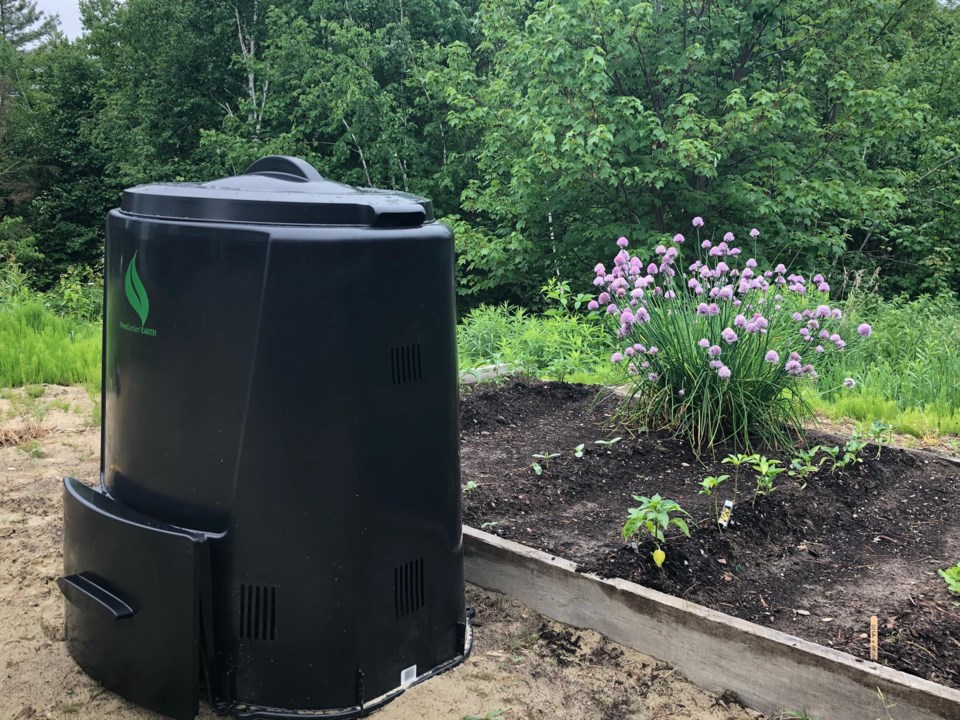Nipissing First Nation residents are keen to compost, as evidenced by the quick reaction to a new program implemented by council.
The pilot project involves offering 40 backyard composters to interested residents. These bins were free and offered on a first-come, first-served basis.
“Right off the bat a lot of people responded," enthused councillor Jane Commanda.
“It’s something we’ve been working on for a while,” Commanda explained, referring to Nipissing First Nation’s council’s desire to incorporate more green practices into their waste management operations.
In late 2019, council received enhancement funding from the First Nations Land Management Resource Centre and the Land Advisory Board.
The $50,000 grant was to create initiatives to divert waste from their landfill.
“But then Covid slowed things down,” Commanda said, which caused a delay on the compost bin program.
However, improvements were made to the landfill during that time, including adding an area to separate household hazardous waste, and an onsite wood chipper.
A phone app was also implemented to remind residents of upcoming garbage days and deliver timely news regarding the local waste management system.
On Friday, Grant Stevens, Nipissing First Nation’s waste diversion coordinator, delivered the 40 compost bins.
This pilot project will gauge the overall interest within the community to continue using the bins. After a few months of use, Stevens plans to follow up with residents to gauge their composting experience.
There are approximately 861 households in the community, which includes 296 leaseholders in Beaucage and Jocko Point, and if all goes well with the pilot project, council will attempt to secure funding for more bins.
Moreover, if community interest warrants it, council will consider conducting a feasibility study to investigate the pros and cons of adopting a green bin program, which would entail curbside pickup of compostable waste.
“I think it will go well,” Commanda said, mentioning “There is about 30 per cent to 40 per cent of organic waste going to the landfill now,” and hopes “within a couple of years from now, that will be reduced.”
The program “will lengthen the life of the landfill,” she added.
As for composting herself, Commanda has used one in her garden for years, “similar to the ones they are giving out” to residents.
Using compost reduces garbage and cuts down the need for special fertilizers.
Commanda highlighted and mentioned other recent programs within the community that tie in well with this new green initiative.
Seed kits have recently been distributed, and “there have been workshops held on tending plants” as well.
“It’s all coming together," Commanda said of the green initiatives, which are also "helping people to rely on themselves."
David Briggs is a Local Journalism Initiative reporter who works out of BayToday, a publication of Village Media. The Local Journalism Initiative is funded by the Government of Canada.
